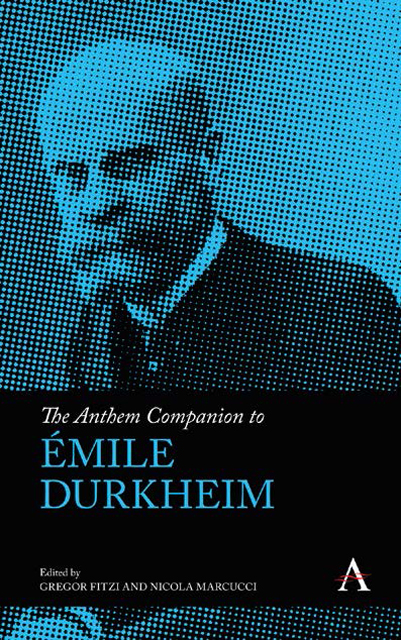Chapter One - Back To The Future: Durkheim And The Aporia Of Sociological Theory
Published online by Cambridge University Press: 09 December 2022
Summary
Alfred North Whitehead famously remarked that the past 2,000 years of philosophy were a series of footnotes to Plato. Similarly, we can see sociology in the past 100 years as a series of footnotes to Durkheim – in both a positive and a negative sense. In the responses to his thought, we find a number of accusations which have been built up, through repetition, into a standard view of his failures. So for British ethno-methodology, he ignores signs, gestures, and language, excludes subjectivity and ignores the subject– object relation (Walsh 1972) and lacks a theory of communication (Silverman 1985). These accusations are false, but damaging. (I will address the source of these misunderstandings below, and I suggest that they are rooted in Durkheim's infamous methodological strictures about treating social facts as ‘things’ and from the ‘outside’.) What is being presented in these critiques is a ‘way of thinking’ about Durkheim's project. Here, there is a constitution of prejudice which is similar to the formation of social facts for Durkheim for these critiques are repeated in teaching and publication. It is ‘repetition’ which gives ‘ways of thinking’ a kind of ‘consistency’, which thereby acquire a kind of ‘form’ and ‘a body’ (1895a, 9/54). These are a form of theoretical ritual whereby he has become a negative totem for post-positivist sociology. And when we add the accusations of holism, determinism and conservative functionalism, then the founder is ritually buried.
‘Durkheim,’ said Charles Lemert, ‘like most of his age, is dead. Like few others, his body of work lives on to haunt the present’ (Lemert 2008, 8). But in what does this haunting consist? My suggestions are the following: Firstly, he is held as the originator of sociological functionalism. But what is really involved here and do the critiques of functionalism actually apply to him? Secondly, the rationalism of the Durkheimian project would appear to be swept away by post-modernism and post-structuralism. And thirdly, for the verstehen and the phenomenological traditions, he is a shade to be exorcised.
- Type
- Chapter
- Information
- The Anthem Companion to Émile Durkheim , pp. 11 - 28Publisher: Anthem PressPrint publication year: 2022

